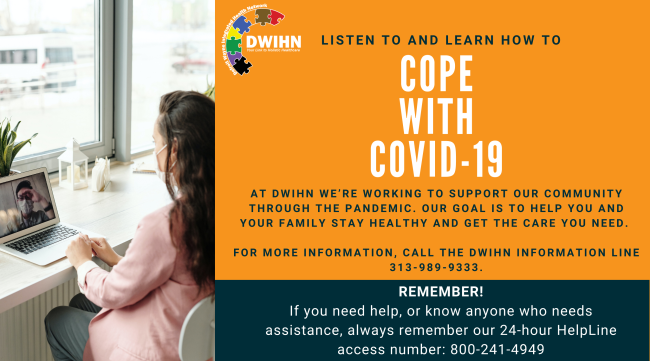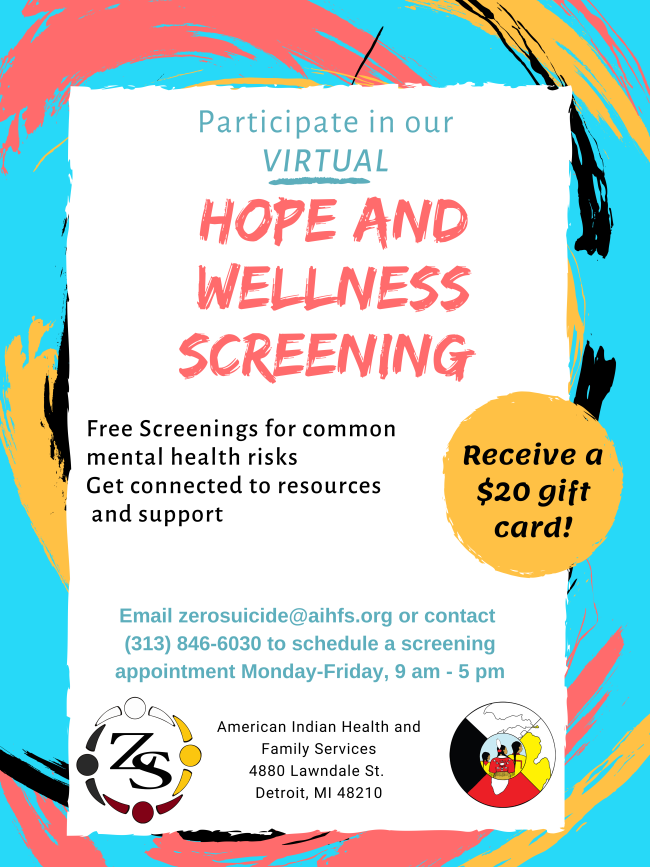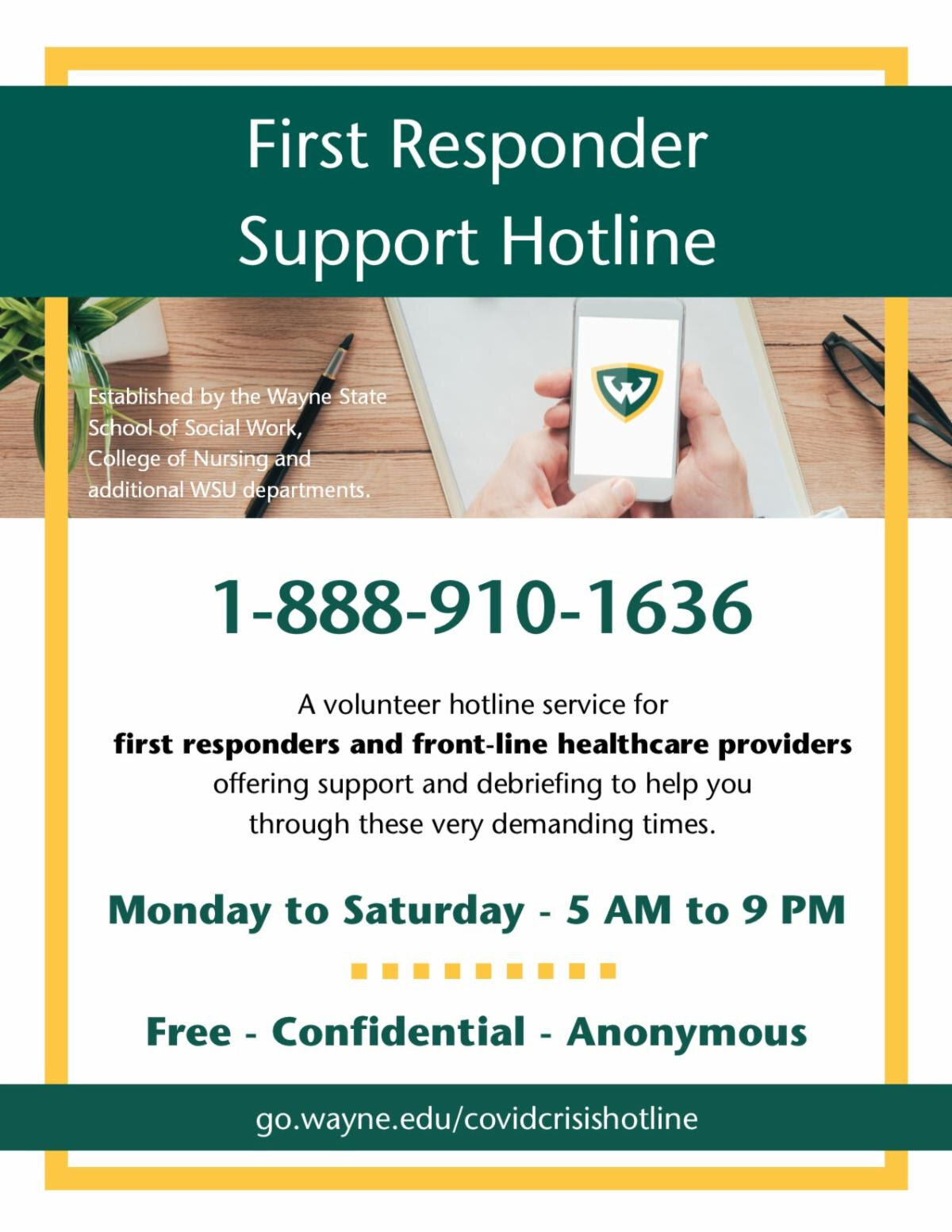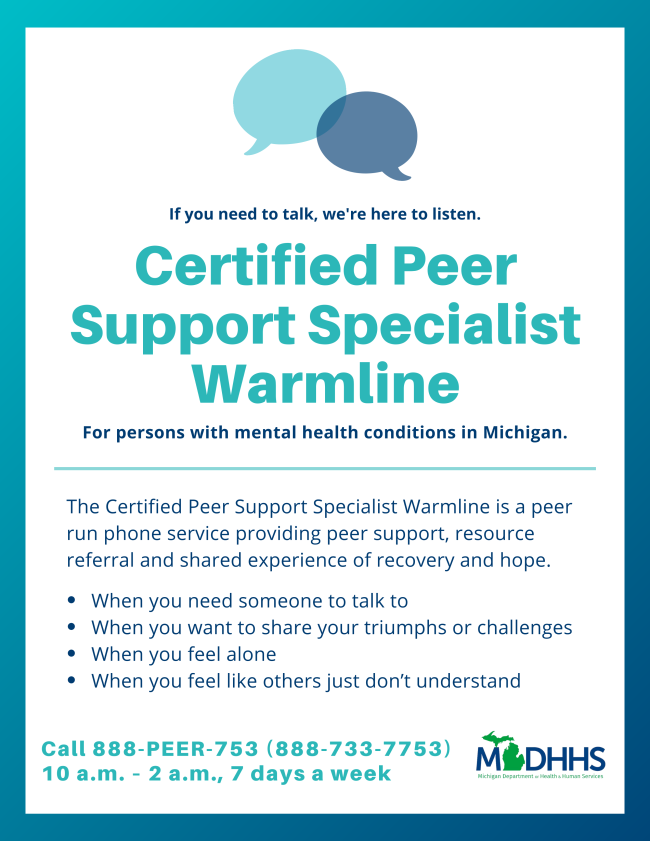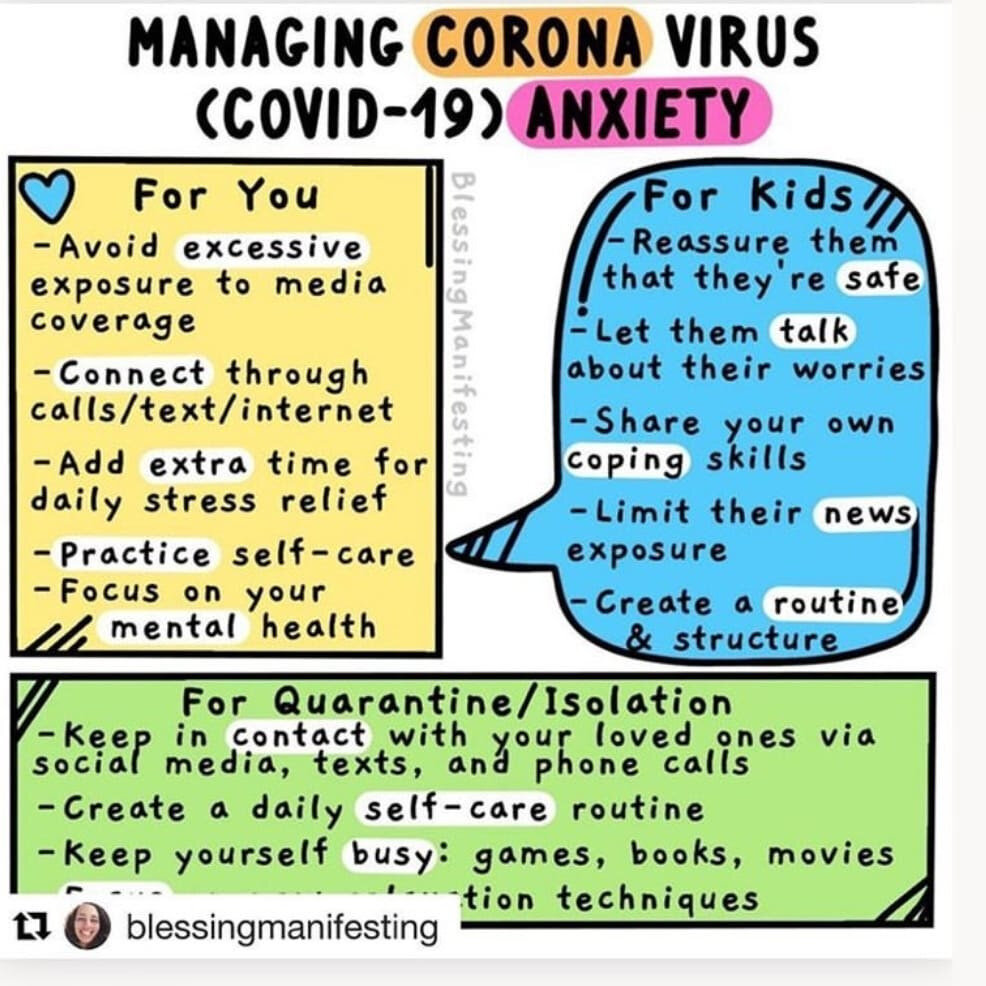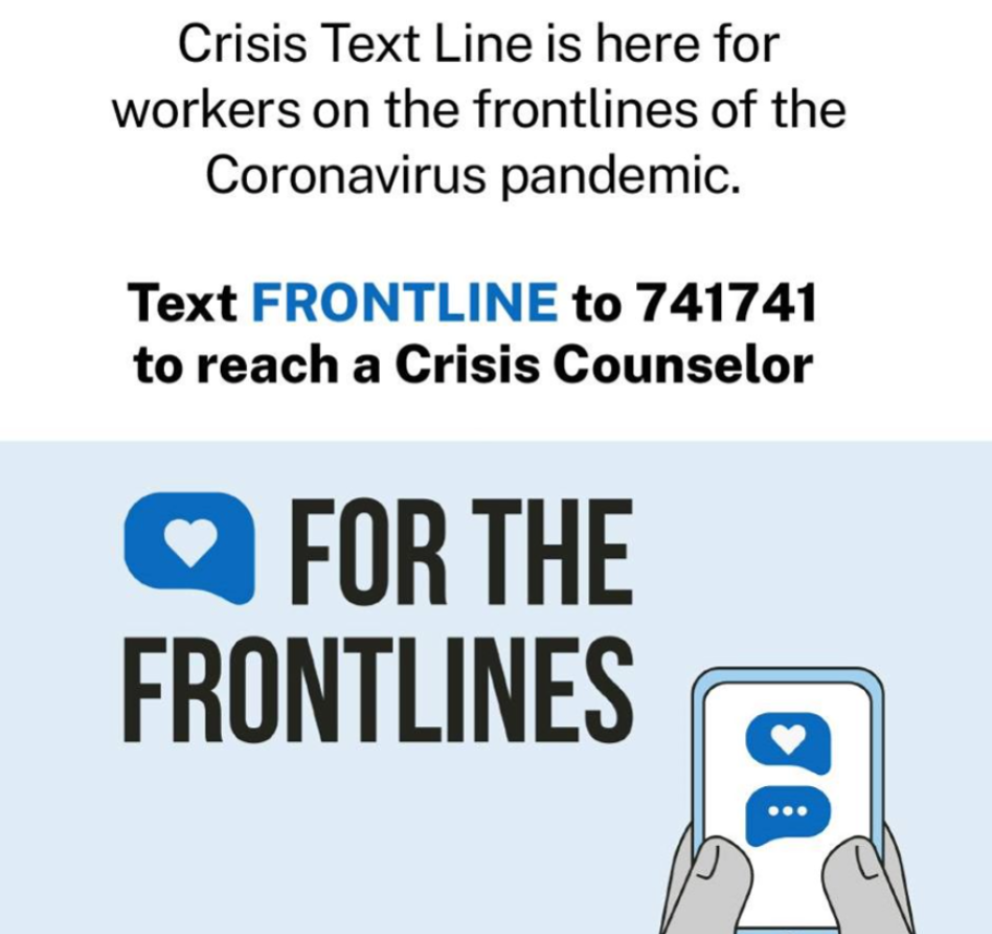Suicide Prevention and Mental Wellness Crisis Training
How teens can protect their mental health during coronavirus (COVID-19)
Being a teenager is difficult no matter what, and the coronavirus disease (COVID-19) is making it even harder. With school closures and cancelled events, many teens are missing out on some of the biggest moments of their young lives — as well as everyday moments like chatting with friends and participating in class.
For teenagers facing life changes due to the outbreak who are feeling anxious, isolated and disappointed, know this: you are not alone. We spoke with expert adolescent psychologist, best-selling author and monthly New York Times columnist Dr. Lisa Damour about what you can do to practice self-care and look after your mental health.
1. Recognize that your anxiety is completely normal
If school closures and alarming headlines are making you feel anxious, you are not the only one. In fact, that’s how you’re supposed to feel. “Psychologists have long recognized that anxiety is a normal and healthy function that alerts us to threats and helps us take measures to protect ourselves,” says Dr. Damour. “Your anxiety is going to help you make the decisions that you need to be making right now — not spending time with other people or in large groups, washing your hands and not touching your face.” Those feelings are helping to keep not only you safe, but others too. This is “also how we take care of members of our community. We think about the people around us, too.”
While anxiety around COVID-19 is completely understandable, make sure that you are using “reliable sources [such as the UNICEF and the World Health Organization’s sites] to get information, or to check any information you might be getting through less reliable channels,” recommends Dr. Damour.
If you are worried that you are experiencing symptoms, it is important to speak to your parents about it. “Keep in mind that illness due to COVID-19 infection is generally mild, especially for children and young adults,” says Dr. Damour. It’s also important to remember, that many of the symptoms of COVID-19 can be treated. She recommends letting your parents or a trusted adult know if you’re not feeling well, or if you’re feeling worried about the virus, so they can help.
And remember: “There are many effective things we can do to keep ourselves and others safe and to feel in better control of our circumstances: frequently wash our hands, don't touch our faces and engage in social distancing.”
>> Read UNICEF handwashing tips
2. Create distractions
“What psychologists know is that when we are under chronically difficult conditions, it’s very helpful to divide the problem into two categories: things I can do something about, and then things I can do nothing about,” says Dr. Damour.
There is a lot that falls under that second category right now, and that’s okay, but one thing that helps us to deal with that is creating distractions for ourselves. Dr. Damour suggests doing homework, watching a favourite movie or getting in bed with a novel as ways to seek relief and find balance in the day-to-day.
3. Find new ways to connect with your friends
If you want to spend time with friends while you’re practicing social distancing, social media is a great way to connect. Get creative: Join in a Tik-Tok challenge like #safehands. “I would never underestimate the creativity of teenagers,” says Dr. Damour, “My hunch is that they will find ways to [connect] with one another online that are different from how they’ve been doing it before.”
“[But] it’s not going to be a good idea to have unfettered access to screens and or social media. That’s not healthy, that’s not smart, it may amplify your anxiety,” says Dr. Damour, recommending you work out a screen-time schedule with your parents.
4. Focus on you
Have you been wanting to learn how to do something new, start a new book or spend time practicing a musical instrument? Now is the time to do that. Focusing on yourself and finding ways to use your new-found time is a productive way to look after your mental health. “I have been making a list of all of the books I want to read and the things that I’ve been meaning to do,” says Dr. Damour.
“When it comes to having a painful feeling, the only way out is through.”
5. Feel your feelings
Missing out on events with friends, hobbies, or sports matches is incredibly disappointing. “These are large-scale losses. They’re really upsetting and rightly so to teenagers,” says Dr. Damour. The best way to deal with this disappointment? Let yourself feel it. “When it comes to having a painful feeling, the only way out is through. Go ahead and be sad, and if you can let yourself be sad, you’ll start to feel better faster.”
Processing your feelings looks different for everyone. “Some kids are going to make art, some kids are going to want to talk to their friends and use their shared sadness as a way to feel connected in a time when they can’t be together in person, and some kids are going to want to find ways to get food to food banks,” says Dr. Damour. What’s important is that you do what feels right to you.
6. Be kind to yourself and others
Some teens are facing bullying and abuse at school due to coronavirus. “Activating bystanders is the best way to address any kind of bullying,” says Dr. Damour. “Kids and teenagers who are targeted should not be expected to confront bullies; rather we should encourage them to turn to friends or adults for help and support.”
If you witness a friend being bullied, reach out to them and try to offer support. Doing nothing can leave the person feeling that everyone is against them or that nobody cares. Your words can make a difference.
And remember: now more than ever we need to be thoughtful about what we share or say that may hurt others.
Human beings like certainty. We are hard-wired to want to know what is happening when and to notice things that feel threatening to us. When things feel uncertain or when we don’t generally feel safe, it’s normal to feel stressed. This very reaction, while there to protect us, can cause all sorts of havoc when there is a sense of uncertainty and conflicting information around us.
A large part of anxiety comes from a sense of what we think we should be able to control, but can’t. Right now, many of us are worried about COVID-19, known as the “Coronavirus”. We may feel helpless about what will happen or what we can do to prevent further stress. The uncertainty might also connect to our uncertainty about other aspects of our lives, or remind us of past times when we didn’t feel safe and the immediate future was uncertain.
In times like these, our mental health can suffer. We don’t always know it’s happening. You might feel more on edge than usual, angry, helpless or sad. You might notice that you are more frustrated with others or want to completely avoid any reminders of what is happening. For those of us who already struggle with our mental wellness, we might feel more depressed or less motivated to carry out our daily activities.
It’s important to note that we are not helpless in light of current news events. We can always choose our response. If you are struggling, here are some things you can do to take care of your mental health in the face of uncertainty:
1. Separate what is in your control from what is not. There are things you can do, and it’s helpful to focus on those. Wash your hands. Remind others to wash theirs. Take your vitamins. Limit your consumption of news (Do you really need to know what is happening on a cruise ship you aren’t on?).
2. Do what helps you feel a sense of safety. This will be different for everyone, and it’s important not to compare yourself to others. It’s ok if you’ve decided what makes you feel safe is to limit attendance of large social events, but make sure you separate when you are isolating based on potential for sickness versus isolating because it’s part of depression.
3. Get outside in nature--even if you are avoiding crowds. I took a walk yesterday afternoon in my neighborhood with my daughter. The sun was shining, we got our dose of vitamin D, and it felt good to both get some fresh air and quality time together. Exercise also helps both your physical and mental health.
4. Challenge yourself to stay in the present. Perhaps your worry is compounding—you are not only thinking about what is currently happening, but also projecting into the future. When you find yourself worrying about something that hasn’t happened, gently bring yourself back to the present moment. Notice the sights, sounds, tastes and other sensory experiences in your immediate moment and name them. Engaging in mindfulness activities is one way to help stay grounded when things feel beyond your control.
5. Stay connected and reach out if you need more support. Talk to trusted friends about what you are feeling. If you are feeling particularly anxious or if you are struggling with your mental health, it’s ok to reach out to a mental health professional for support. You don’t have to be alone with your worry and it can be comforting to share what you are experiencing with those trained to help.
We are in this together, and help is always available. If you’re feeling alone and struggling, you can also reach out to The Crisis Text Line by texting TALK to 741741 or National Suicide Prevention Lifeline at 1-800-273-TALK.





